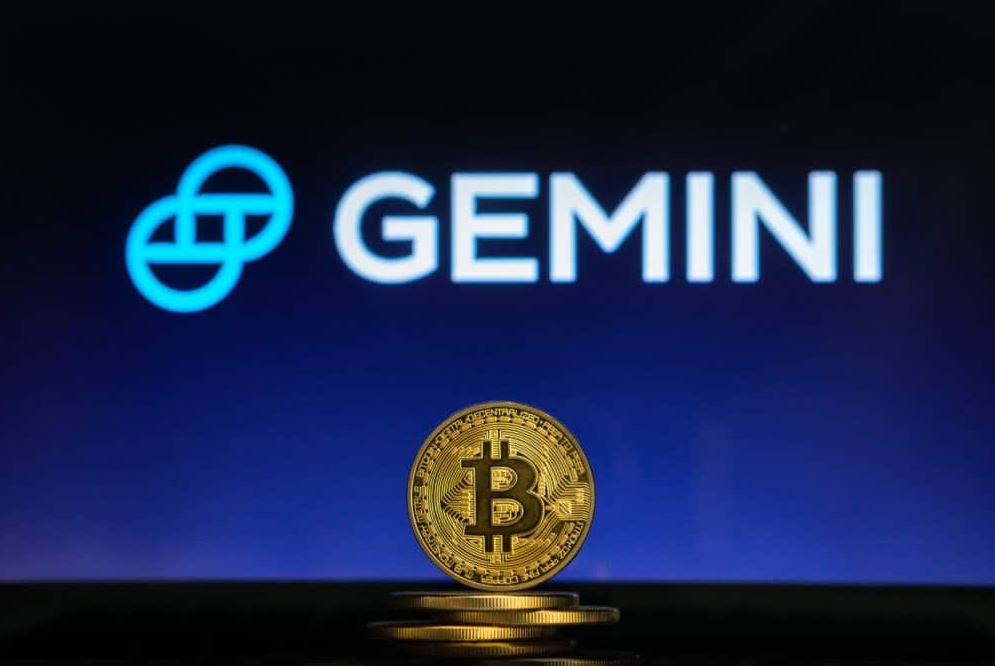
In a sign that cryptocurrency companies are increasingly eyeing Wall Street, crypto platform Gemini has taken the first step toward becoming a publicly traded company. On Friday, June 6, Gemini announced that it had confidentially submitted a draft registration statement with the U.S. Securities and Exchange Commission (SEC) for an initial public offering (IPO).
The company, led by founders Cameron and Tyler Winklevoss, has not yet disclosed how many shares it plans to offer or what the expected price range might be. In a short press release, the platform said the IPO will take place only after the SEC completes its review process, and depending on market conditions.
This quiet but strategic move comes at a time of renewed optimism in both the cryptocurrency and IPO markets.

Timing Gemini’s Move: Just After Circle’s Blockbuster Debut
Gemini’s filing came just one day after Circle, the issuer of the USDC stablecoin, made a splash on the New York Stock Exchange (NYSE). Circle’s IPO saw its stock price triple on its first day of trading, closing at $83.23, up 168% from its initial price of $31. The listing raised nearly $1.1 billion, giving Circle a market cap of $18.4 billion.
This dramatic debut by Circle appears to have helped shift investor sentiment toward crypto IPOs more broadly. In fact, Gemini discussed Circle’s listing in its own Weekly Market Update, noting that the strong debut “represented a hopeful shift for an IPO market that’s been largely muted in recent years.”
According to Gemini, the strong investor demand for Circle’s IPO shows that there’s “huge appetite for a growing cryptocurrency company”, especially now that the U.S. government is taking a more favorable stance toward digital assets.
Political Tailwinds: Washington Warms to Crypto
Several factors may be contributing to this new wave of IPO activity in the crypto space. Chief among them is the political shift happening in Washington. The Trump administration has signaled strong support for blockchain innovation and digital assets. At the same time, Congress is advancing new legislation to regulate stablecoins, a type of cryptocurrency pegged to the U.S. dollar.
These developments are creating “macroeconomic tailwinds”, as Gemini put it, boosting institutional confidence and making the regulatory landscape clearer for crypto companies hoping to go public.
Gemini’s IPO Plans Have Been in Motion for Months
While the official announcement came in June, Gemini’s IPO plans have been brewing for some time. On March 7, reports emerged that Gemini had already filed confidentially and was working closely with investment banks to prepare for an offering.
That same day, Cameron and Tyler Winklevoss were among about 30 executives and government officials who attended the White House Digital Assets Summit, a gathering focused on the future of blockchain technology and U.S. digital asset policy.
Earlier in February 2025, there had been speculation that Gemini was considering going public later this year, though no formal decision had been confirmed at the time.
Gemini’s Public Image: Bold Messaging on Wall Street
In recent months, Gemini has made efforts to shape public and institutional perception ahead of its IPO. On May 13, the company revealed in a blog post that it had launched a billboard campaign across Wall Street, reminding New York’s financial elite that “the next generation financial system is here to stay.”
The blog post emphasized growing institutional adoption of digital assets and pointed out that “policymakers are advancing clearer crypto legislation,” which is helping establish stronger guardrails for the blockchain industry.
“The narrative has changed,” Gemini wrote, and with its IPO plans now public (albeit still confidential with the SEC), the company appears ready to seize the moment.
Gemini’s Place in the Crypto IPO Landscape
If Gemini goes public, it would join a small but growing list of crypto-native firms that have successfully entered U.S. public markets. This includes:
- Coinbase, which went public in April 2021 with an $85 billion valuation.
- Circle, which debuted in June 2025 with an $18.4 billion valuation.
- Riot Platforms and Mara Holdings, which focus on Bitcoin mining and trading.
Gemini differs from some of these players by focusing heavily on security, regulatory compliance, and user trust. It offers tools for buying, selling, and storing cryptocurrency, and has built its reputation on maintaining a regulated and user-friendly platform.
While it remains unclear what valuation the platform is targeting, the company’s timing, just after Circle’s triumphant debut and amid political support for crypto, suggests it could be aiming for a similarly high-profile outcome.

What Comes Next?
Gemini has not committed to a public timeline for its IPO, but if market momentum continues and the SEC’s review proceeds smoothly, the listing could take place before the end of 2025.
The success of Circle’s IPO could also pressure other crypto firms to move faster with their own public market plans, especially if investor demand remains strong.
Should Gemini go public, the offering would provide:
- Liquidity for early investors and employees
- Access to capital to support future growth and product development
- Increased brand visibility on Wall Street and with mainstream investors
Gemini’s confidential IPO filing is a significant moment for the company and a reflection of broader trends in the crypto world. With investor appetite returning and the U.S. government softening its stance on digital assets, the door is open for more crypto firms to step into public markets.
If Gemini succeeds in its IPO, it will mark another milestone in the ongoing mainstreaming of cryptocurrency, from niche innovation to Wall Street staple.























